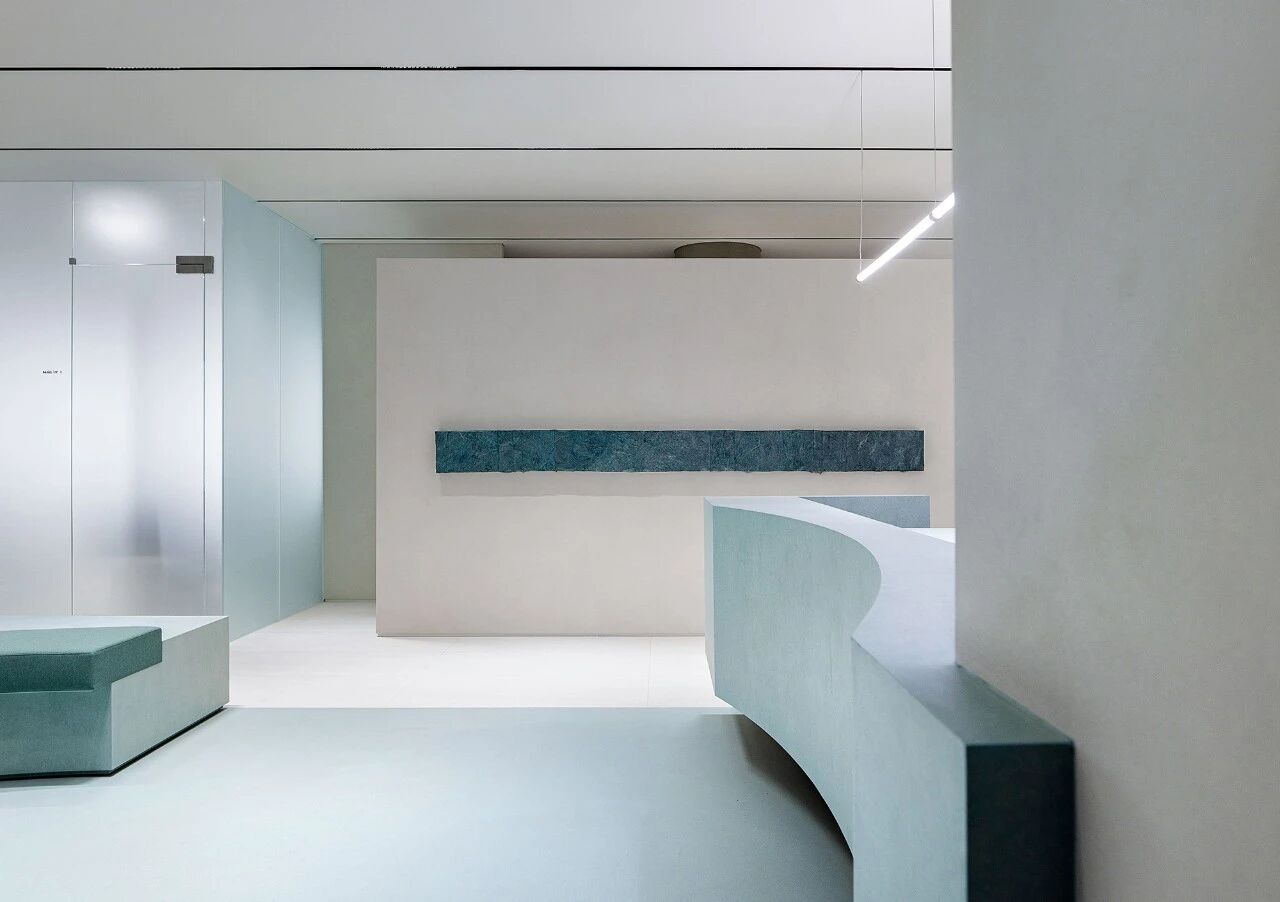Brutalism blossoms in Sydney with an orthogonal new mosque 一座正交的新清真寺在悉尼盛开
2019-08-09 11:36
Candalepas Associates designs the Punchbowl Mosque in Sydney, merging traditional Islamic architectural motifs with a brutalist visage. Photography: Brett Boardman
Sydney’s Candalepas Associates has brought a slice of brutalism to the city’s Punchbowl suburb with an orthogonal new mosque. The concrete structure provides a new home for the Australian Islamic Mission, and its various educative and community facilities can host up to 300 worshippers at once.
悉尼的Candalepas协会(CandalepasAssociates)通过一座正交的新清真寺,给这个城市的蓬奇波尔郊区带来了一片暴行。这一具体结构为澳大利亚伊斯兰特派团提供了一个新的住所,其各种教育和社区设施可同时容纳多达300名礼拜者。
The mosque forms the first of a two-part project for the local Islamic community. The second stage of the plan will see the development of new community buildings that will orbit the place of worship, in turn bringing the local faith closer together. Candalepas Associates was resultantly driven to give the mosque a unique architectural vernacular, so to help it stand separate and distinct from its future sibling spaces.
清真寺是当地伊斯兰社区的两部分项目中的第一个。计划的第二阶段将看到新的社区建筑的发展,这些建筑将围绕礼拜场所,进而使当地的信仰更加紧密。CanalepasAssociates的结果是让清真寺成为独特的建筑语言,以帮助它与未来的兄弟空间分开和不同。
The development is arranged around a quadrangle that forms two interconnected yet distinctly isolated courtyards. The two open spaces provide ample space for the mosque’s primary daytime functions, and grant privacy to community members making use of the facilities inside. The second of the two, located further towards the centre of the development, can be opened up to the building’s interior, catering to larger events and festivals across the year.
发展是围绕一个四边形排列的,该四边形形成了两个互相连接但明显分离的庭院。这两个开放空间为清真寺的主要日间功能提供了充足的空间,并向利用内部设施的社区成员提供隐私。第二个位于发展中心的第二个可被开放到大楼的内部,为整个年举办更多的活动和节日。
Heading inside, natural light forms a central element of the core prayer space. The vaulted ceiling features a funnel-like skylight that looks upwards, out of the concrete. The feature rises to a second tier of rounded wooden rings, climbing in gradually constricting waves to reveal a circular orifice above.
自然光向里面,形成核心祈祷空间的中心元素。拱顶天花板采用漏斗状,从混凝土中向上看。该特征上升到第二层圆形木环,逐渐变窄的波浪,露出上面的圆形孔口。
The natural light provided by this centrepiece is supplemented across the interior. A two-tiered transparent wooden façade filters in light above the main entrance. Additionally, over 100 muqarnas – the archetypal patterned motif of Islamic architecture – all feature 30mm diameter holes that welcome in slim rays of sunlight. This combination produces an interior lighting experience that evolves as the day’s prayer services follow one another.
这一中心提供的自然光是通过内部补充的。一个双层透明的木质立面滤镜在正门上方的光线下。此外,100多个木卡纳斯-伊斯兰建筑的原型图案主题-都有直径30毫米的洞,在微弱的阳光下受到欢迎。这种结合产生了一种内部照明体验,随着一天的祈祷服务彼此跟随而演变。
Elsewhere, a splayed off-form wall juts from the mosque’s main entry doors, breaking the visual language and concurrently positioning worshippers towards the city of Mecca in Saudi Arabia, the birthplace of Muhammad. §
在其他地方,从清真寺的主要入口门伸出了一根从清真寺大门伸出的不成形状的墙,打破了视觉语言,同时将崇拜者定位到沙特阿拉伯的麦加市,这是穆罕默德的诞生地。§
摄影:BrettBoardman摄影:BrettBoardman
摄影:BrettBoardman摄影:BrettBoardman
摄影:BrettBoardman摄影:BrettBoardman
摄影:BrettBoardman摄影:BrettBoardman
 举报
举报
别默默的看了,快登录帮我评论一下吧!:)
注册
登录
更多评论
相关文章
-

描边风设计中,最容易犯的8种问题分析
2018年走过了四分之一,LOGO设计趋势也清晰了LOGO设计
-

描边风设计中,最容易犯的8种问题分析
2018年走过了四分之一,LOGO设计趋势也清晰了LOGO设计
-

描边风设计中,最容易犯的8种问题分析
2018年走过了四分之一,LOGO设计趋势也清晰了LOGO设计


































